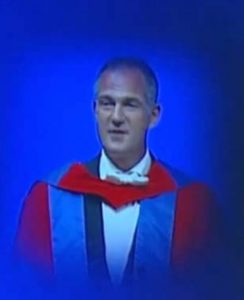This is an edited version of a Twitter thread by Peter Kyle @PeterKyle …
I want to say something about living with acute dyslexia because Twitter can be a pretty unforgiving place for people with unseen challenges.
Every day I get picked up on something I write. Mostly it’s kindly or humorous which is appreciated. Sometimes it’s sneering or brutal.
What’s it like? Imagine a car where the gearbox (my eyes) isn’t connected properly to the engine (brain).
Sometimes words are just shapes. However much I try to engage my brain, the connection just isn’t there. I can see the shape but it simply has no meaning. Frustrating, huh!
I don’t know why but some words are worse. Also I can learn, like this: I was given a hard time recently for spelling “lose” as “loose”. It’s one of my common ones.
So I wrote them out with a tick by “lose” and kept it on my desk for several weeks.
When I write it now I still don’t recognise the right spelling by its meaning. I get it right because I’ve learned the shape.
If I write “loose”, I now know it looks wrong, and the most likely letter to delete is an “o” and when I do the shape looks right. Sadly I can’t do that for every word.
The last time I was assessed, when I was 30, my reading and comprehension age was estimated at 8 years and 3 months.
For some things, like word comprehension, I was in the bottom 1 percentile. For others, like word association, the top 1 percentile. Dyslexics are extremes!
Recently I spelled “border” as “boarder”. Most people were forgiving. Hundreds were not: “thick” / “can’t be an MP if you can’t even spell” / “stupid” / “resign and let someone with a brain take over” etc.
I’m very resilient, but it reminded me of a time when I wasn’t. At school a teacher forced me to stand and read Shakespeare. I did it one painful word at a time.
The teacher and some kids thought it very amusing. Most looked at the floor in embarrassment or pity.

I was put into “remedial” – a class with kids experiencing quite severe learning and behavioural difficulties. I was sent to a quack doctor who made me wear a wooden contraption on my head every evening.
This was the 1980s not the 1880s!
I knew none of this was right for me. But don’t get me wrong, most teachers and staff were kind. I had loads of friends. I hated education, understandably, but had a lot of affection for my school (Felpham Comprehensive) – I hope that makes sense!
I left without any usable qualifications, but returned when I was 25 and started over. Just imagine the humiliation of walking into that classroom.
On my third attempt I got accepted at Sussex University. I left six years later with a degree and doctorate.
So how do I cope now? I have a few techniques (thanks Siri for spelling that) like creme paper = fewer stumbles when reading speeches.
Above all I know I must work harder than most to achieve the same: prepping, writing, corresponding, reading … everything.
This isn’t depressing. It’s liberating. Once you know this, you have the tools to succeed. And every challenge for a dyslexic is matched with a gift.
To the people who say, “get a member of staff to check your tweets before you send them,” I respectfully say: never! I’d rather they spent their time doing something valuable like helping the people who turn to us in times of need, not checking my boring old tweets.
So if you’re part of the spelling police, there are 649 other MPs out there. Enjoy!
If sincerity is what matters most to you, then welcome.
And if after all that you still want to hurl insults, the very least you can do is get my name right … it’s Dr Thick to you!
Peter Kyle is the Labour MP for Hove.













Congratulations for responding in your usual clear, direct and sensitive manner. I may not always agree with you, but I admire your approach.
Very interesting read, thank you. And similar to my own experiences. Though not being part of the public eye I get less scrutiny on my spelling, thankfully! And yes, it is very much about all the tricks one develops (a word doesn’t have an ‘e’ at before the ‘s’, as it took me many years to master).
You mention speeches, and to this day, the only way I’ve managed to get through such things is to memorise them! I figured this out at University after getting a fail on a presentation because I had to simply give up! I find that, under pressure, my ability to read decreases substantially – words become a mess of random, unrecognisable scribbles on a page.
Anyway, keep up the good work!